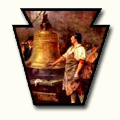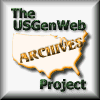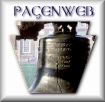| |
Page 467
BRADY TOWNSHIP.
Lutherans, and after the erection of the new house of worship by the
Lutherans, who, also, tore down and removed the old Union building, the
Reformers commenced the erection of a church of their own. In 1853 the
foundation and corner-stone was laid, and in the year following (1854) the
church was dedicated as " Trinity-Reformed Church." Rev. C. A. Limberg was
called (and accepted) the same year. The building committee consisted of Fred.
Wingert, H. Lott, sr., and Michael Schuker, sr. Besides these, the following
also were among the members at the organization of the congregation : Fred
Zeigler, Conrad Mehrwein, sr., Adam Weis, George and Fred Buchheit, Jacob Weber
and his sons, Jacob, Henry and Peter, J. J. Weber, John Weber, Christ. Haag,
sr., Mr. Aurand, George Schucker, Lewis Kuntz, Jacob Hummel, sr., Peter Shafer,
Jacob Mehrwein, John Ergott, and others. In 1855 or 1856 a Sunday-school, under
the care of the church, was established, both in the German and English
languages. Rev. Limberg labored successfully for ten years, when he resigned and
accepted a call at Butler, Pa. The following pastors have served this
congregation, since 1854 to the present time, in the order given : Revs. H.
Bielfield, Paul Wald, L. Christ, H. Hoffmeier, John Wolbach, and B. S. Metzgar.
Present membership about three hundred ; Sunday-school about one hundred.
Evangelical Lutheran ( English ).—In the year 1832
the general synod of the Lutheran Church presented Father Phil. Geulich
(residing at Clearfield) with a "Book of Sermons" in the German language, who,
once in each month during 1832 and 1833, came to Luthersburgh to read a sermon
from this book, which was listened to with reverence and attention. It was, at
this time, that Rev. John Althaus, the Reformed pioneer minister, made his
appearance, who preached rather regularly in the old "round" log church and
school-house, which had been built prior to his coming. In 1842 the German
Lutherans and Reformers built a union church, between Luthersburgh and
Troutville. During the time from 1833 to 1842 Revs. John Willox, Gotwald and
others preached. During this period Rev. John Willox gave catechetical
instruction in the English language. In September, 1843, Rev. George J. Donmeyer
organized the " St. Peter's Evangelical Lutheran" congregation of Luthersburgh,
Pa. He became its pastor ; William Rishel and Henry Goodlander were elected
elders ; Peter Arnold and Elias Rishel, deacons, Peter Arnold serving as
secretary. In 1845 a frame church, 40 by 40 feet, was built—still standing. It
was this church in which the Presbyterians worshiped, by paying sixty dollars
into the building fund, which secured for them the privilege. In November,
1845, Rev. J. A. Nuner took charge of the pastorate. He served till October,
1847. Rev. P. P. Lane followed, serving till about 1850, when there occurred a
vacancy, lasting till 1852, when Rev. Christ. Diehl became the regular pastor,
serving till the early part of 1856, when he was succeeded by Rev. W. H. Rex,
who served two years. He was followed by Rev. J. J. Stein, who
|
|






